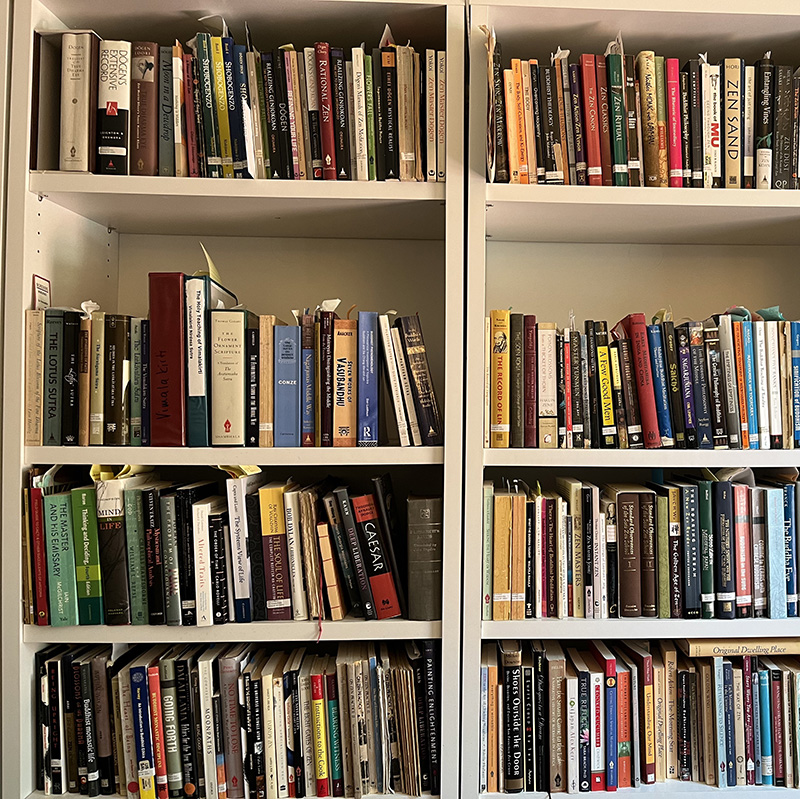Zen Training
Why Zen?
The Zen Garland Way cultivates the human capacity to connect intimately with each living moment in experience, in relationship, in interactive co-creation with our situation. Dogen Zenji calls this shinzo, “the ever intimate.” Human nature is this intimate, unified inter-relatedness of all creation. The place of wholeness, salvation, and liberation is this intimate connection with life, moment by lived moment, which we describe as “reclaiming the world.”
The Zen Path depends on personal experiences, insights and effortful emergence from habitual and harmful patterns of behavior. This path leads to experiences of the unity of life. Zen training goes far beyond that, liberating us to be fully human, alive and awake in the interactive, co-creative multiverse present right here now.
Our practice is designed specifically for people engaged in the demanding discipline of worldly life – responsibilities, ethical values and commitments, relationships, raising children, handling finances, career, recreation, and community involvements. Zen practice must address the tasks, motivations, emotions and actions that moment by moment make up our daily lives. In our vision, the hallmark of Zen accomplishment is not the hermitage or monastery, but rather mindful, skillful, and whole-hearted living right here and now in the spaces of our day-to-day life.
Zen practice should advance human development. We do not separate human development and spiritual development, nor divide secular from sacred. Life itself is the zendo and the universe of enlightenment. Zen helps us to bring a flexible, compassionate, and open HeartMind to our lifeworld. We discover that our lives moment by moment present the best opportunities for development, meaning, and fulfillment
Getting Started
At the Center in Your Area:
Each of our Zen Garland Order centers offers an Introduction to Zen Practice. This is scheduled at various times and in differing formats – a brief explanation of meditation and the zendo (training hall) etiquette, a half-day or full-day class, or a weekend workshop.
To register for an Introduction to Zen Practice, please go to the website of the center in your area where you wish to attend and sign up online or call.
Some of the topics we cover in our Introduction to Zen Practice:
- The Body, Breath and Mind in Basic Zen Meditation
- We show you meditation positions on chair, bench, and floor mat-and-cushion, helping you find which suits you best.
- We teach you the basic abdominal breathing style for meditation.
- We present some anatomy from Chinese medicine and help you learn to rest your attention in the kikai point an inch below your navel
- Zendo Etiquette
- Key terms in Buddhism and Zen
- A brief history of Buddhism and the development of Zen
- The Zen Path through the metaphors of the Ox Herding Pictures
- The services of the local center
- The mission, lineage history and structure of The Zen Garland Order
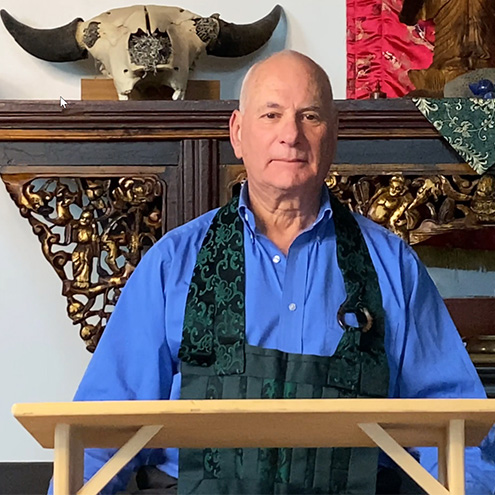
14-Video-Lectures: Introduction to the Zen Garland Way-The Ever Intimate of Zen Practice
Online
Additionally, you can access a 14-video lecture course by Roshi Genki called: Introduction to the Zen Garland Way-The Ever Intimate of Zen Practice.
The 8 Core Practices

Various Forms of Zen Meditation
There is no such single “thing” as zazen or Zen meditation. Zen Teachers guide students in many forms of BodyMind practice. BodyMind is another description of human consciousness that includes all our senses and thinking capacities. The various forms of Zen meditation train our consciousness to perceive dimensions of experience more fully and build skills so that we can maintain Presence in the use of our human faculties in our interactions with the LifeWorld. Indeed, this emphasis on consciousness reveals that human being is not a separate isolated entity, but interactive, co-creative, inter-relational being of Self-and-Living World.
Embodiment Practices
“To discover the BodyMind continuum and develop Embodiment, we must DISEMBODY our conceptual physical form and conceptual material existence. Only then can we realize that this very body is the Dharma Body, Buddha Nature, all creation, our very intimate consciousness.”
~ Roshi Paul Genki Kahn
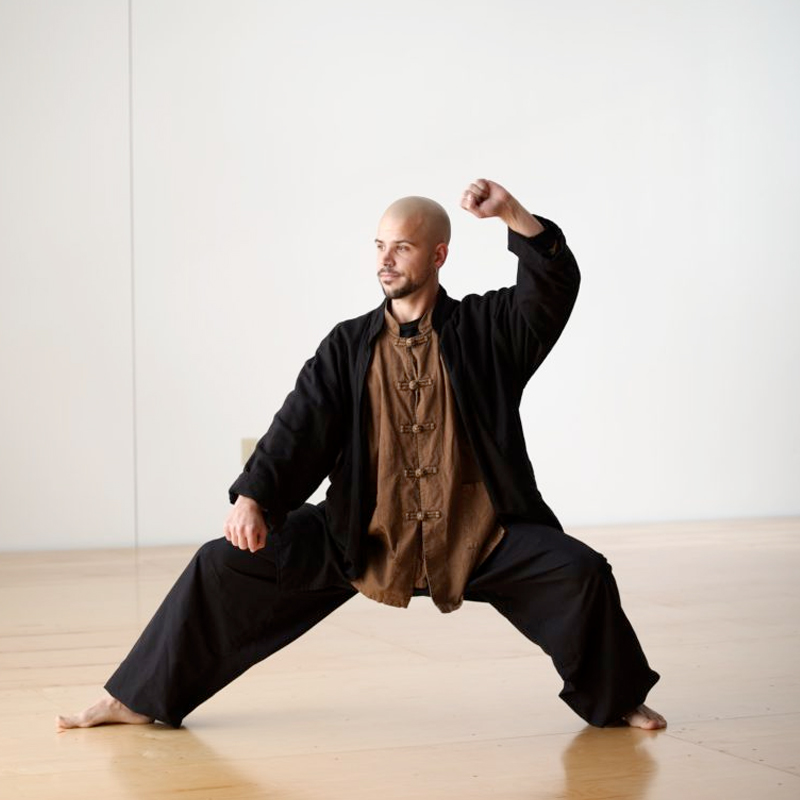

Ethical Maturation
Ethical Maturation is the Zen Garland Order Core Practice through which spiritual awakening is embodied as wise, compassionate discernment and action in the complexity and uncertainty of everyday life.
Ethical Maturation is concerned with how spiritual awakening is lived through ethical discernment, choice, and action amid the complexity of everyday life. This practice does not treat ethics as rule-following, moral identity, outcome-driven calculation, or idealized virtue. Instead, Ethical Maturation emphasizes a personal, developmental training grounded in lived practice and real situations.
Working With A Zen Teacher
“To study Buddhism is to study the self.
To study the self is to forget the self.
To forget the self is to be enlightened by all things”
~Dogen Zenji
Zen Study-Practice takes place in private individual sessions with our Roshis and Senseis (Dokusan) and Dharma Holders (Interviews). Teaching also occurs through public Dharma Talks (Teisho), group discussions and council gatherings, classes and workshops, service projects and retreats.
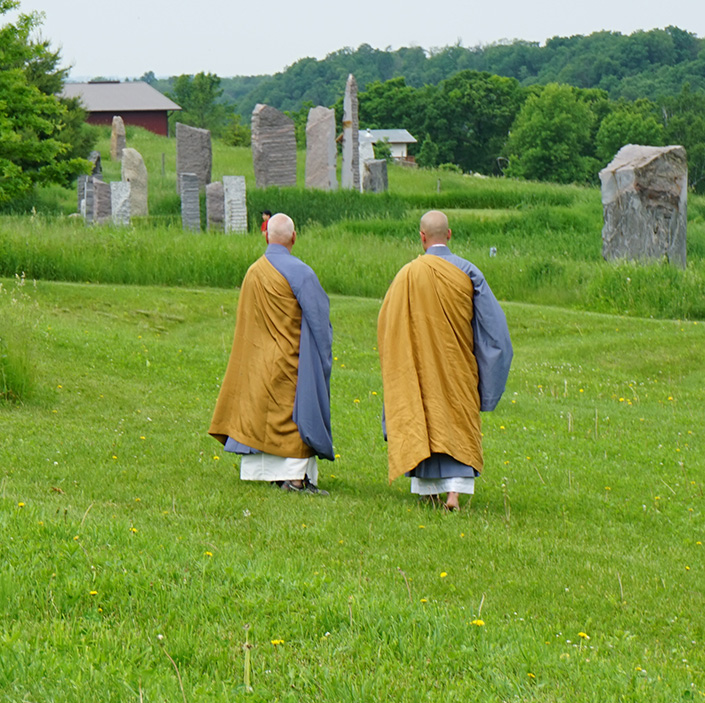

Service Projects
The Zen Garland Order has as a Core Practice, Engaged Compassion, expressing our spiritual and organizational commitment to the socially engaged Buddhist movement brought alive in our lineage by Zen Master Bernie Glassman and carried on by Roshi Genki. Engaged Compassion refers to seeking practical ways to apply and implement the insights from various forms of Zen practice, realization and teachings to situations of social, political, environmental and economic suffering and injustice. Engaged Compassion seeks to apply Buddhist teachings in a more activist and social manner than has been traditional. Engaged Compassion aims to reduce social suffering and oppression through political and social reform.
Liturgy, Vows & Ceremony
Priests in the Zen Garland Order vow to maintain and perform the liturgy and rituals that sustain our communities. This includes:
Daily Service
Ceremonies held for community members and their families
Empowerments
Healing Rituals
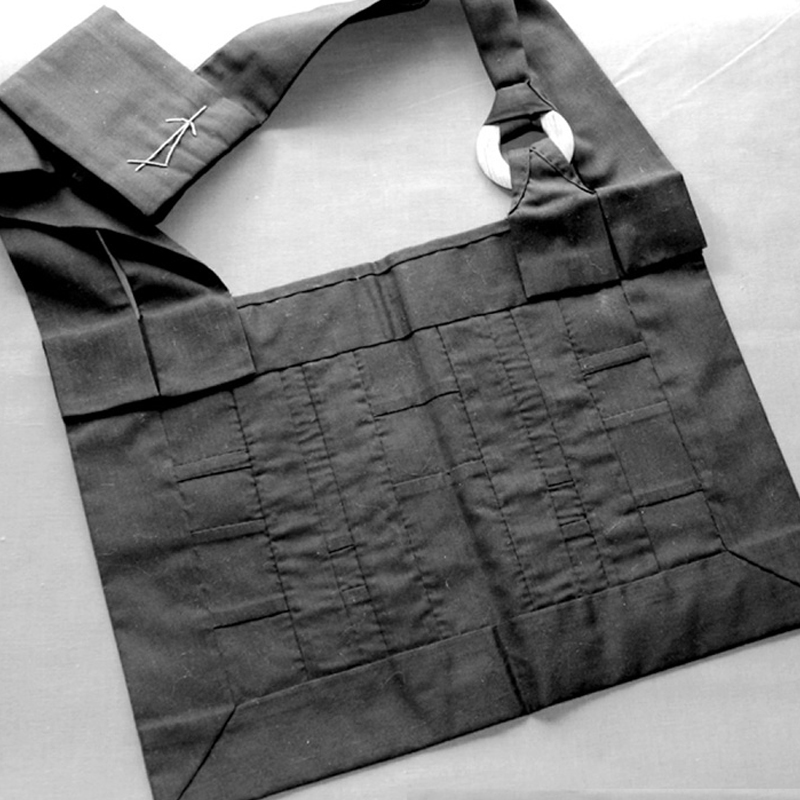
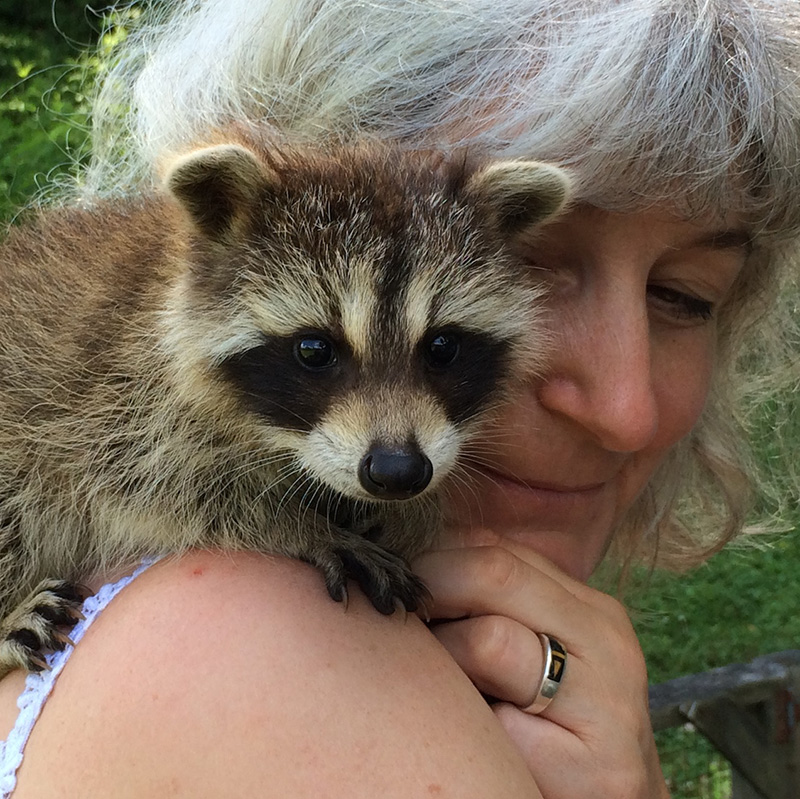
Relationship With The Natural World
We need to establish a new and intimate relationship with the natural world. Our Red Path Zen tradition calls this “healing our relationship with Grandmother Earth,” and describes life’s unity as “mitakuye oyasin, all my relations.” We have adopted Zen Master David Loy’s term “ecodharma” to describe a Zen Buddhist approach to this. Loy suggests three aspects:
- Committing ourselves to a spiritual reconnection, a tangible and sensual reawakening to the natural world as being our very body.
- Exploring the ecological implications of Buddhist teachings.
- Embodying that understanding in the eco-activism that is crucial at this tipping point in time.
Buddhist Texts, History & Philosophy
Knowing the origins of text elements and sayings of old masters is essentially important to immerse ourselves fully into this ancient 2500 year old tradition and practice. It helps us to recognize and relate to our daily life experiences today.
